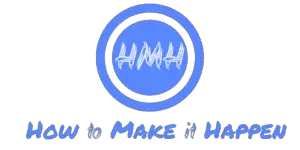A couple of years ago, I started feeling overwhelmed by career choices after I quit my job and decided to transition into a new professional direction. Ideas kept spinning into my head. And following just one career path seemed wrong and even almost impossible to handle emotionally.
Why Can We Feel Overwhelmed By Career Choices? Feeling overwhelmed by career choices is one manifestation of the overchoice or choice overload problem. The latter is “a cognitive process in which people have a difficult time making a decision when faced with many options”[1]. Combined with the stress of constant change and the fear of missing out (FOMO), it can feel pretty daunting and prevent someone from taking any steps at all.
I started my life with what looked like a clear career path. However, this was mainly due to my determination to prove that I could be anything I wanted. In my late twenties, I quit and decided to start from scratch.
I took a year off first, lived in different places. While in the beautiful Parque Lençois Marranhenses, in Brazil, when asked what I wanted to do by a great friend of mine, I answered:
“My dream would be to change job or field every 6 months, like a chameleon, to experience an incredible variety of different lives”.
A few years later, I finally have to admit to myself that I am still searching for the perfect career path or the perfect way to combine a few different paths. Where does this feeling come from and where should you go when you want it all? Reasons why we feel overwhelmed by career choices and how to go about them.
Why We Feel Overwhelmed By Career Choices And How To Go About It
Choice Overload
A certain amount of choices is necessary and has a pleasing effect through the variety it offers to an individual. But when faced with too many options, the decision process becomes more complex and therefore hard to process for your brain.
How to cope with choice overload?
Try to filter down your professional options. Get them back to a manageable amount. For me, it would be psychology, architecture, social or online entrepreneurship, programming, new technology, medicine.
First, see whether one of the paths could actually help you include some of the other areas you would like to pursue. In the example above, online entrepreneurship could help me combine many of my desired paths. For instance, by writing articles or publishing online classes, I could tackle a variety of subjects by using similar tools again and again.
Second, ask yourself whether you feel attracted by the perks of this career path (e.g. great salary, prestigious social position), or by the field itself.
If you fall into the first category, you may either stick long enough with your choice to discover it was a great one in the end (for the lucky ones) or have to re-calibrate your career later on, once you realized this job really is not for you, with more pain due to the extra years spent doing something else.
I rather fall into the second category. I would love to help you avoid the extra pain, however, I have to say that I learned so much on the way that I do not regret my initial choice.
Stress Of Constant Change
Unfortunately, most cultures and education systems have not properly caught up with the new rhythm. Very often, you are asked to choose one specific path, maybe even to become a specialist or an expert in a field.
This is what happened to me. During studies, people kept asking me what precisely I wanted to do, as a career.
“No clue.”
And today, close to 10 years after I graduated, my cluelessness has not changed.
But we all know that tomorrow is made of uncertainties, now more than ever. On the one hand, millions of jobs will disappear because of robotization and automation. And although many people just think of blue-collar positions, I can see many white-collar jobs become redundant in the next 10-15 years as well.
On the other hand, brand new and hot topics make their appearance in the job world all the time (e.g. Blockchain, A.I.).
How can you be sure that what you pick now will stay on the top list for a relevant time during your working life?
Remind yourself that whatever path you choose now, it is very unlikely you will stay on this precise track forever. If you are about to study or want to learn something on the side to change careers, pick something that genuinely interests you so that you will be willing to stay on track for a while.
Whatever you learn, if you become good at it, it will open more doors than you may think at first. The world is more interconnected than we believe. Companies are less and less looking for precise skills acquired during studies. They want people who are able to adapt and learn new things.
The Fear of Missing Out (FOMO)

What if others make the right choice, and you do not? Maybe your friends will be more successful, wealthier, happier than you. The fear of missing out, also called fear of regret, can play a major role and make you want to change path every second day.
I often feel that way. When I get to know new people, who seem very happy in their work, or when a close friend changed career successfully, I immediately start wondering whether this could also be the path for me.
But how can we filter this syndrome of “the grass is always greener on the other side” out?
In the book The Subtle Art of Not Giving a F*ck: A Counterintuitive Approach to Living a Good Life*, Mark Manson tells us his story.
As a teenager, he always dreamt of becoming a famous guitarist. He imagined the crowd of fans carrying him away during concerts…
Dream on…
So, he started learning how to play the guitar. And then, other things became more important and so, he stopped. Then started again, then stopped again. And so on.
Until the day he realized that he had never really wanted to become a famous guitar player. He was just in love with the idea of being a famous guitar player, but he had never been in love with the process of becoming one.
Ask yourself the same question. Do you only fancy the perks of being a famous writer, or a very wealthy trader, or a versatile programmer? Or will you also love the pains and challenges you will encounter on this career path?
I for myself know that there are certain things for which I enjoy the pains and process enough to be able to reach the goal. I do not only love the idea of being multi-lingual, I also truly love learning languages, pains and difficulties included. In fact, the more difficult a language, the more pleasure I take in learning it.
I also enjoy the entrepreneurial process, even though it is filled with uncertainty and other obstacles.
But on the other hand, even though I would probably enjoy being at a very high position in a top company or organization, I do not enjoy the process enough to get there.
What about you?
Multi-Facet Careers Can Solve Your Dilemma
If you feel like you have many passions and almost anything could interest you, maybe it is worth thinking about a certain type of career that would allow you to virtually cover any field of interest after only a minor adaptation phase. Here are a few examples of which I could think.
If you love to write, way to go. The internet industry needs fresh input all the time. Old topics can always be revisited, and new ones are in high demand. What if you build up your own niche websites?
The same goes for photography amateurs. The web constantly needs new pictures. You can work for a niche, create your own brand, and take advantage of new trends.
If you have a rather logical mind, why not dive into coding? You could work on diverse projects. Learn new programming languages all the time. Maybe even create an app or the next blockchain yourself. You would be at the forefront of the tech industry, able to take advantage of new trends if you want to.
If you are the organizational type, project management is also a great skill that can be applied to varied fields.
Focus on the ONE thing
In the book The ONE Thing: The Surprisingly Simple Truth Behind Extraordinary Results*, Gary Keller describes how everything changed for him the day he understood that focusing on just ONE thing would help him not only be more successful but also live a healthier, happier life.
Take your time to review your career options, let all the pros and cons of each one sink in. Procrastination can be good in certain situations. I believe that when faced with too many career options, you should let yourself enough time to get to the point where you feel like one path clearly stands out. Once you decide, just stick to this ONE thing for some time. As changing constantly will most likely lead to more overwhelm and little result.
During my time in college, I discovered that while it was important for me to have diverse activities, it was even more important for me to be able to classify them.
Above all, I needed one clear priority, all the other activities being optional and cancellable when in doubt.
This insight came after I had made the mistake to choose a challenging specialization to be done over 6 months, while also being part of the most important student organization. Both required full-time attention. And for 6 months, I had the feeling that I did not perform as well as I could have in either role. It felt very frustrating.
Deciding which is your ONE thing for the next few months will help you focus better, make more progress, and say “no” when necessary.
Related Questions:
How do I choose a job if I like everything? Focus on your natural interests and passions and take your skills and competencies into consideration. Then, ask yourself: which job would I regret most not having done? And while choosing, keep in mind that life is long, and most things are possible. You will probably exercise 5 to 10 different jobs in your lifetime so chill out. Start the first one, and keep the others in mind for later.
How do I choose a second career? First, take some time to examine the reason(s) why you left or are about to leave your first career. Which pain points are pushing you away? It may be a bad pay, boredom, a lack of responsibilities or many other reasons. Which second career path could help you at least improve the situation? Also do not forget to pay attention to the good aspects of your previous career. Could they vanish in the second career, and how would that make you feel? After this, trust your intuition and pick the career that you need to do, otherwise you may regret it.
Books That I Love – To Help You Out:



